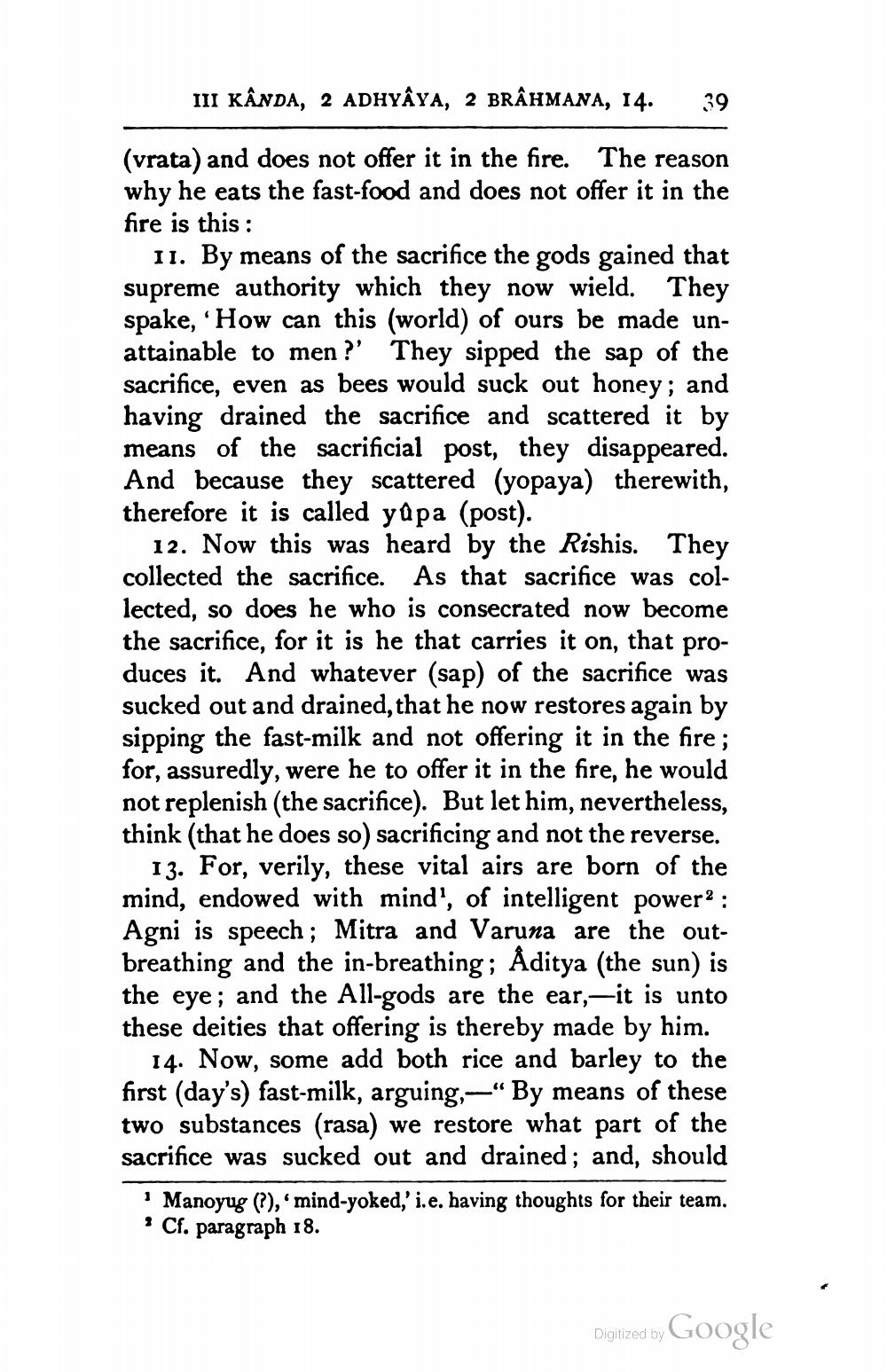________________
III KÂNDA, 2 ADHYÂYA, 2 BRÂHMANA, 14.
39
(vrata) and does not offer it in the fire. The reason why he eats the fast-food and does not offer it in the fire is this:
II. By means of the sacrifice the gods gained that supreme authority which they now wield. They spake, 'How can this (world) of ours be made unattainable to men ?' They sipped the sap of the sacrifice, even as bees would suck out honey; and having drained the sacrifice and scattered it by means of the sacrificial post, they disappeared. And because they scattered (yopaya) therewith, therefore it is called yûpa (post).
12. Now this was heard by the Rishis. They collected the sacrifice. As that sacrifice was collected, so does he who is consecrated now become the sacrifice, for it is he that carries it on, that produces it. And whatever (sap) of the sacrifice was sucked out and drained, that he now restores again by sipping the fast-milk and not offering it in the fire; for, assuredly, were he to offer it in the fire, he would not replenish (the sacrifice). But let him, nevertheless, think (that he does so) sacrificing and not the reverse.
13. For, verily, these vital airs are born of the mind, endowed with mind', of intelligent power? : Agni is speech; Mitra and Varuna are the outbreathing and the in-breathing; Åditya (the sun) is the eye; and the All-gods are the ear,-it is unto these deities that offering is thereby made by him.
14. Now, some add both rice and barley to the first (day's) fast-milk, arguing,—"By means of these two substances (rasa) we restore what part of the sacrifice was sucked out and drained; and, should
Manoyug (?), 'mind-yoked,' i.e. having thoughts for their team. * Cf. paragraph 18.
Digitized by Google




